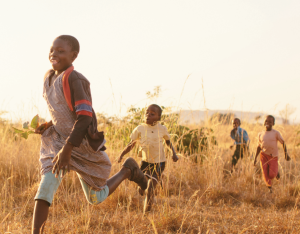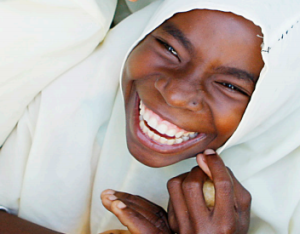2016
From the UN Special Envoy: Thoughts on the Year to Come
by Ray Chambers
 The start of a new year often stirs up thoughts and reflections of how we can build on our personal and professional goals from the previous twelve months. For me, and for so many others in the global development community, this past December represented more than just the passing of another year, but instead marked an important milestone. As 2015 came to a close, so did the Millennium Development Goals (MDGs), the world’s first set of global targets to accelerate progress toward meeting the needs of the world’s poorest.
The start of a new year often stirs up thoughts and reflections of how we can build on our personal and professional goals from the previous twelve months. For me, and for so many others in the global development community, this past December represented more than just the passing of another year, but instead marked an important milestone. As 2015 came to a close, so did the Millennium Development Goals (MDGs), the world’s first set of global targets to accelerate progress toward meeting the needs of the world’s poorest.
As I take a moment to reflect, I realize that my involvement in the work of the MDG era has been one of my most fulfilling endeavors, in both business and in my over 20 years of philanthropy. Gains across all health targets contributed to a more equitable and just world: Over 6.2 million malaria related deaths were averted since 2000, most of which were children under 5 years of age, and we are now on course to end childhood malaria deaths completely; HIV infections declined by 40% and those living with the virus receiving treatment rose from 800,000 to over 13 million in under a decade, and; Prevention, diagnosis and treatment interventions for tuberculosis saved roughly 37 million lives between 2000 and 2013.
I am very proud of the 48 million children’s lives saved from preventable conditions like pneumonia, diarrhea, and premature births. Every one of these children’s lives is a victory.
 These victories did not happen by chance. They were driven by the tireless determination of those who prioritized our charge and funded our progress, notably The Global Fund to Fight AIDS, Tuberculosis, and Malaria, The Bill & Melinda Gates Foundation, The World Bank, the Governments of the United States and United Kingdom, and UNITAID, among others. I also applaud my partners in the United Nations family, especially the World Health Organization, UNICEF, UNAIDS, and UNFPA, who worked alongside NGO partners such as the Clinton Health Access Initiative, Save the Children, Partners in Health, Medecins Sans Frontieres, and others, demonstrating time and again their commitment to delivering equitable health services to those in greatest need.
These victories did not happen by chance. They were driven by the tireless determination of those who prioritized our charge and funded our progress, notably The Global Fund to Fight AIDS, Tuberculosis, and Malaria, The Bill & Melinda Gates Foundation, The World Bank, the Governments of the United States and United Kingdom, and UNITAID, among others. I also applaud my partners in the United Nations family, especially the World Health Organization, UNICEF, UNAIDS, and UNFPA, who worked alongside NGO partners such as the Clinton Health Access Initiative, Save the Children, Partners in Health, Medecins Sans Frontieres, and others, demonstrating time and again their commitment to delivering equitable health services to those in greatest need.
But make no mistake, the end of the MDG era does not mean our job here is finished. To the contrary, we should take stock of our accomplishments and view them as motivation for the road ahead. There is much left to achieve. And, together, I am confident we will achieve it.
The newly adopted Sustainable Development Goals (SDGs), a more comprehensive set of global targets, now serve as a framework for our collective movement forward. It is our responsibility to draw upon lessons learned over the last fifteen years and leverage our collective expertise to uphold the promise we set forth with the signing of the Millennium Declaration.
Granted, there are skeptics who will turn their attention to areas that fell short of the MDG targets and doubt our ability to push through
adversity. I am certain that we will hit roadblocks on our path forward. The recent Ebola outbreak in West Africa and refugee crisis sweeping across Europe are examples of global emergencies that threaten to undermine our efforts. But they also affirm the need for our continued focus and timely action.
We must now turn our attention to the majority of maternal and under-five deaths that occur in places of conflict and post-conflict. These deaths are largely due to the same preventable causes as those that have fallen dramatically in more stable areas and these families deserve our support. Variations within countries are increasingly eclipsing variations across countries, and our efforts should reflect greater precision in targeting the most vulnerable communities with health services.
I feel strongly that now is also the time to correct one of the greatest injustices on our planet and turn even more attention to the millions of people living with HIV not currently receiving treatment. With the recently approved guidelines from the World Health Organization recommending immediate treatment for all those living with HIV, and the recent announcement from the Clinton Health Access Initiative of the price of HIV medication reduced to less than $100 annually per person, there is no excuse for not providing “treatment for all”. We have the financial resources secured to achieve it collectively, and if we are not able to execute, the HIV epidemic will spiral beyond our control.
We are more prepared than ever to take on the tasks at hand. At every obstacle, we have grown stronger and more refined in our approach. It is our responsibility and moral obligation to double-down on our efforts and act without delay in working toward the new global goals for sustainable development, and ensure we reach those most underserved populations.
As we celebrate the arrival of a new year, let us take a moment to acknowledge the opportunity at hand–our collective opportunity to shape a world free of poverty, in which no child dies from a preventable cause before their fifth birthday, and where we see an end to the epidemics of HIV, tuberculosis and malaria.

